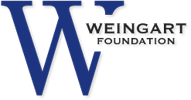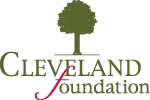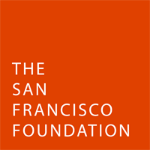Coronavirus heightens the importance of being a transparent and flexible foundation

In a week’s time, life has changed in unimaginable ways as a result of the coronavirus (COVID-19) outbreak. Predictable routines of work and school have been upended as we “shelter in place” and shift work to home offices shared in many cases with spouses and newly homeschooled children. Meanwhile local services and businesses have limited hours or are completely shuttered.
Nonprofits on the front lines of serving vulnerable communities and addressing new needs stemming from the magnitude of this public health and economic crisis will be tested in unexpected ways. All while adjusting budgets to a reality in which fundraising galas, revenue-generating programs, and conferences have come to a grinding halt. In such a perfect storm of calamity, philanthropic institutions must also depart from business as usual to continue to be effective community partners.
As a result, there is a growing recognition that a foundation must be accessible and flexible to mount an effective response. For example, some funders are participating in a new effort to act with urgency and agility in support of nonprofit partners and communities as part of a new Council on Foundations Pledge. And even prior to the crisis, PEAK Grantmaking had issued new “Principles for Peak Grantmaking” calling on philanthropy to align practices with values, and make grantmaking practices efficient and equitable. Efforts like these are trying to identify ways to ease the burden on grantees, which is more important than ever at this critical time.
To better understand how a flexible foundation is able to depart from business as usual, and to surface some good options, here at Candid we conducted a scan of Coronavirus-related announcements on the websites of the 102 GlassPockets foundations—grantmakers that have committed to operating their philanthropy in open and transparent ways. Our scan revealed some promising practices in how some foundations are publicly declaring changes to their grantmaking policies to meet this moment.
How are foundations communicating a departure from business as usual during this crisis? What are some of the more proactive approaches to being flexible that foundations are offering, and how are funders trying to mitigate the stresses on grantees and communities?
So far, 46 of these 102 participating foundations have already issued some kind of publicly shared statement related to the foundation’s response to the coronavirus, demonstrating that a crisis likes this heightens the importance of transparency and accessibility. You can access the full list at the end of this post. To add your response announcement to this list, send it here.
The following approaches illustrate the different ways in which some flexible foundation leaders have announced that they are adapting to this new reality:
- grant flexibility on adjusting grant goals, payments, and reporting deadlines;
- willingness to repurpose funds intended for conferences and convenings;
- assurances around foundation finances and ability to meet existing grant commitments and sustain budgeted grantmaking levels;
- establishment of new response funds to address the crisis;
- keeping equity and vulnerable populations in mind;
- pointing to relevant information and knowledge the foundation has collected; and
- open invitations for ideas and suggestions about how the foundation can be most helpful.
These are very challenging and unexpected times with no playbook or instruction manual for any of us to follow. So, here are examples of how some foundations are implementing these strategies that may serve as a model for others.
Grant flexibility
Foundations have a lot of power at their disposal to ease restrictions, timelines, and reporting burdens on their grantees. Here are a few specific ideas that could be scaled across the field for greater impact:
- Re-think grant agreements, payment schedules, and reports: In a reassuring message from its CEO, Jim Canales, the Barr Foundation provides grantees the opportunity to revisit grant objectives, timelines, and terms, which is fairly consistent with what other foundations that have announced flexible options have described. The Barr Foundation also has similar flexibility about the possibility of accelerating payments or adjusting reporting deadlines and deliverables. Most notably, Canales’s message shares that the foundation is also “open to alternative formats for such reports, such as taking them verbally, by phone or video conference.” Because grant reports are often time-consuming and lengthy, having the opportunity to satisfy reporting requirements via a conversation is a helpful solution that could have great impact if it were a scaled practice across the field.
 Implement automatic grant reporting extensions: In addition to general flexibility on grant terms, the McKnight Foundation announced that due to the impact of the coronavirus, all existing grantees will automatically receive a three-month extension on all grant reports. No phone calls or emails needed! Automatic report extensions are a great way to honor the time of both grantee partners and foundation staff by saving all concerned the time to reach out, discuss, and grant an extension. After all, if the IRS can do it, so can foundations!
Implement automatic grant reporting extensions: In addition to general flexibility on grant terms, the McKnight Foundation announced that due to the impact of the coronavirus, all existing grantees will automatically receive a three-month extension on all grant reports. No phone calls or emails needed! Automatic report extensions are a great way to honor the time of both grantee partners and foundation staff by saving all concerned the time to reach out, discuss, and grant an extension. After all, if the IRS can do it, so can foundations! Convert project grants to general operating support: The Ford Foundation’s executive vice president of programs, Hilary Pennington, announced a number of flexible approaches the foundation is taking. In addition to adjusting grant objectives, deliverables, and timelines, Pennington also offers: “For grantee partners receiving project support, we are open to converting your current project grants to general support, so that you have maximum flexibility to respond to COVID-19.” This kind of flexibility is a real way to acknowledge that we are all facing a very different reality than the one in place at the time the project was designed.
Convert project grants to general operating support: The Ford Foundation’s executive vice president of programs, Hilary Pennington, announced a number of flexible approaches the foundation is taking. In addition to adjusting grant objectives, deliverables, and timelines, Pennington also offers: “For grantee partners receiving project support, we are open to converting your current project grants to general support, so that you have maximum flexibility to respond to COVID-19.” This kind of flexibility is a real way to acknowledge that we are all facing a very different reality than the one in place at the time the project was designed.
Conferences, gatherings, & convenings
Allow repurposing of conference dollars: Several foundations that have announced a willingness to be flexible and loosen grant restrictions are specifically pointing to flexibility around funds intended for conferences and convenings. The Barr Foundation and Ford Foundation’s messages both include allowances for such circumstances. Additionally, The Walter and Elise Haas Fund is among those announcing that “to those of our nonprofit partners who planned events and conferences that now need to be canceled, to minimize the negative financial impact, our general policy, with some exceptions, will be to allow the organizing organization to retain the Fund’s registration fees as a donation, and to not request a refund.”
Opening up about foundation finances
Underscoring that often transparency is an act of empathy, some foundations understand that their grantee partners may be understandably worried about a foundation’s finances in light of daily headlines about the toll the pandemic is having on stock values. Such funders are including reassuring information in their messages about the foundation’s intent to sustain its budgeted grantmaking levels, ability to meet future grant commitments, and commitment to fund multi-year, general operating support.
For example, the Ford Foundation’s announcement includes helpful details about how the foundation’s approach is designed to “weather crisis.” Pennington begins by explaining how the foundation has shifted its grantmaking from mostly program to now mostly general operating support, then shifts to sharing helpful investment information: “We take a balanced approach to investing and protecting our endowment, reducing risk and providing a potential cushion for economic downturns. In 2015, we changed our budgetary policies to apply a three-year rolling average of the endowment value to determine our spending each year. In doing so, we insulate our grantees because the foundation’s spending does not fall off a financial cliff.”
The Weingart Foundation also asserts its continuing commitment to making unrestricted support available. “We currently plan to maintain this commitment to providing Unrestricted Operating Support in the upcoming fiscal year. Nonprofit partners have long shared that unrestricted, multi-year grants are the most effective form of funding. In the aftermath of the 2008 financial crisis, we saw first-hand how groups used our unrestricted dollars to maintain essential infrastructure and sustain support to communities. The COVID-19 crisis requires the same approach, and we have urged our foundation colleagues to adopt or increase operating support grantmaking.”
New crisis response funds
Give grantees extra support: Foundations also have flexibility to respond to this moment by creating new funding opportunities. Given sudden unexpected financial hits, such as canceled conferences or the expense of new infrastructure to support remote work, the Heising-Simons Foundation has already created a Rapid Relief Fund for its grantees that’s designed to “offset unexpected costs incurred for disruptions to operations as a result of the coronavirus outbreak.” The fund will give grantees up to $25,000 to mitigate such losses. It’s clear these unprecedented times of forced physical distancing will take a great financial toll on nonprofits that rely on event-based revenue generation, so there is lots of room for other foundations to follow the Heising-Simons Foundation’s lead by making such emergency-related support available.
Community foundations are also mobilizing their resources to establish regional response funds. These funds are largely designed to address the needs of vulnerable communities in the regions served by the foundation. The Cleveland Foundation frames its crisis response in a historical context. Since the foundation dates back more than a century to 1914, the foundation’s message reminds us it has addressed similar challenges, including the flu pandemic of 1918. The Greater Cleveland COVID-19 Rapid Response Fund “will begin by deploying resources to address the urgent health, basic human services and economic needs of disproportionately impacted communities and individuals.” Though the fund was very recently mobilized, the foundation transparently provides a detailed plan of action, including short- and long-term goals, target beneficiaries, fund structure, and strategy.
These are just a couple of examples of hundreds of funds that have been established nationally to help regions around the country respond to the crisis. Candid is tracking these funds and making information about response grantmaking publicly accessible on a new Coronavirus Response website here.
Response funds & racial equity
An important aspect of some of the new crisis funds is to ensure racial equity and inclusion for communities most affected by the crisis. For example, the San Francisco Foundation’s COVID-19 Emergency Response Fund addresses worker support, preventing homelessness and providing renter protection/housing security, ensuring food security, and addressing racial bias. Racial equity as a priority is deeply embedded throughout the San Francisco Foundation’s work, so this is a good example of how a foundation extends a racial equity lens into all aspects of its work, including crisis response, to ensure that historically disadvantaged populations are not left behind.
The California Endowment’s new $5 Million COVID-19 Response Plan also prioritizes an equitable approach to serving the needs of the most vulnerable communities. Shawn Ginwright, a professor of African American Studies at San Francisco State University and chair of The California Endowment board of directors, explains, “We look forward to engaging California’s public and private sectors as partners standing strong together to protect the public health and safety of our families, neighbors, communities of all races, ethnicities, sexual orientation and identities.” The fund supports “public health efforts and the immediate social and health services needs of highly vulnerable Californians, including farm workers/day laborers, the homeless and undocumented individuals.”
To learn about other examples focusing on equity, United Philanthropy Forum has recently started an effort to encourage foundations to “keep equity at the forefront in philanthropy’s response to the Coronavirus.” Its open letter to philanthropy encourages donor-serving organizations to sign on and pledge to mitigate the ways in which the virus may worsen existing inequities.
Information & knowledge sharing
Foundations that have expertise in public health, education, or working with specific regions or populations may have helpful resources and information to share. These types of foundations are often including space in their coronavirus response messages to point to such tools.
Because of Creative Capital’s expertise in supporting individual artists, its website has a very helpful and comprehensive resource list of emerging funds to help artists respond to the crisis. As individual artists lose work from canceled performances, gigs, and exhibits, the need for such dedicated funds is high. Jamie Allison of the Walter and Elise Haas Fund underscores this point in a recent blog: “And it is troubling to recognize how disproportionately and direly the arts community is being affected—as that community is dependent on people coming together. If we cannot infuse artists with support, we risk many arts organizations closing their doors for good.”
Another knowledge sharing example comes to us from the Bill and Melinda Gates Foundation, which is one of the few foundations with a deep bench of experience supporting the fight against infectious diseases globally. As a result, its coronavirus coverage focuses on sharing hard-won knowledge gained from investing in this global threat. One of the resources shared includes an informative New England Journal of Medicine article by Bill Gates about how donors and governments can work together to more effectively respond to this pandemic. Other knowledge shared includes expert perspectives on topics such as what it will take to accelerate COVID-19 self-testing, investing in therapeutics, and the role of technology. Transparency related to knowledge sharing is too often a missing piece in how foundations open up their playbooks, yet as Gates’s insights demonstrate, we have a lot to learn from one another.
Welcome suggestions
In recognition that foundations don’t have all the answers, some are also making space in their messages to announce a means for stakeholders to provide ideas for consideration. In a quickly evolving crisis such as this one, encouraging participation from community voices is an important means to creating inclusive and effective responses.
The Walter and Elise Haas Fund very quickly developed and issued a short survey to its grantees to help guide the development of its coronavirus response. In a blog from executive director Jamie Allison, she shares the survey’s results, explaining that the needs fell into the following five categories: funding; togetherness; flexibility; technical assistance; and policy. Since the survey findings can be helpful to other funders, both the quantitative results and foundation analysis are available via the blog.
In the case of the REACH Healthcare Foundation, a request for ideas comes directly from foundation president & CEO Brenda Sharpe, who lists her own email address for such suggestions. She urges grantees to contact her to discuss concerns and clients’ specific needs as they relate to COVID-19 response. Typically requests for such suggestions and open-ended comments are relegated to generic email addresses in which one is unsure who is on the receiving end, or how frequently it’s monitored, so including this call for ideas in a personal request from the CEO heightens both the urgency and sincerity of the request.
Inviting community input also emphasizes that we are in this together, which seems a particularly important message for a social sector in the age of social distance. Compiling this list is one way Candid is trying to do our part to bridge the distance and help us learn from one another. Toward that end, as your foundation surfaces new ideas and ways of working that would benefit others, please let us know so we can highlight it. You can reach us in the comments below or send your comments here.
Sample Foundation Coronavirus Statements
- Arkansas Community Foundation
- Barr Foundation
- Brazil Foundation
- Bush Foundation
- California Community Foundation
- The California Endowment
- California Healthcare Foundation
- Carnegie Corporation
- Cleveland Foundation
- Commonwealth Fund
- Creative Capital
- Ford Foundation
- Bill and Melinda Gates Foundation
- GHR Foundation
- Give2Asia
- Evelyn and Walter Haas, Jr. Fund
- Walter and Elise Haas Fund
- Heising-Simons Foundation
- William and Flora Hewlett Foundation
- Conrad N. Hilton Foundation
- John D. and Catherine T. MacArthur Foundation
- McKnight Foundation
- MetroWest Healthcare Foundation
- Meyer Memorial Trust
- C.S. Mott Foundation
- Community Foundation of Napa Valley
- David and Lucile Packard Foundation
- Ian Potter Foundation
- Kenneth Rainin Foundation
- Rasmuson Foundation
- REACH Healthcare Foundation
- Rockefeller Foundation
- Rockefeller Brothers Fund
- Russell Sage Foundation
- The San Diego Foundation
- The San Francisco Foundation
- Community Foundation of Santa Cruz County
- Silicon Valley Community Foundation
- Alfred P. Sloan Foundation
- Surdna Foundation
- Visiting Nurse Association of Chicago (aka VNA Foundation)
- The Wallace Foundation
- Walton Family Foundation
- Weingart Foundation
- The Zellerbach Family Foundation
















Valerie Leonard says:
Thanks for writing and sharing this article, Janet! I included the RSS feed to it in my last e-newsletter. The information is quite comprehensive and useful!